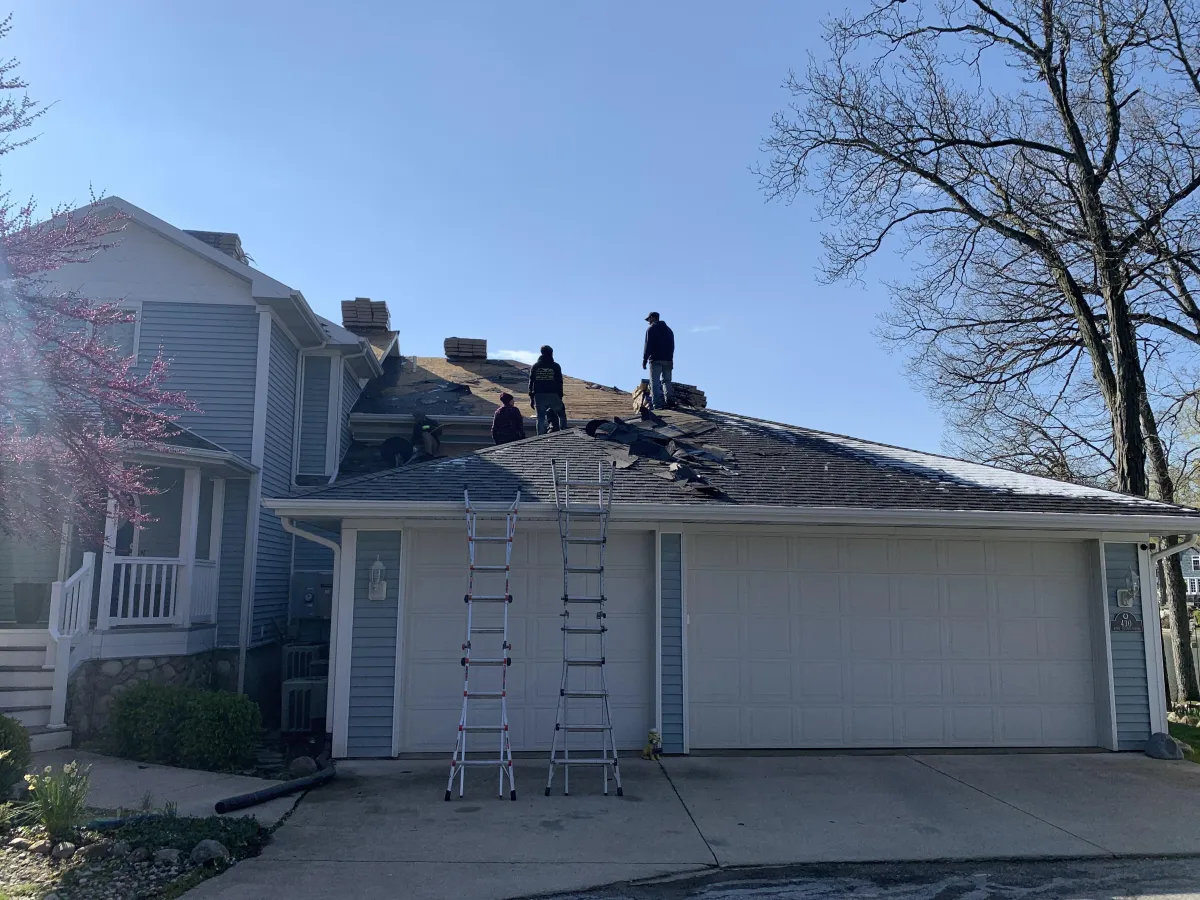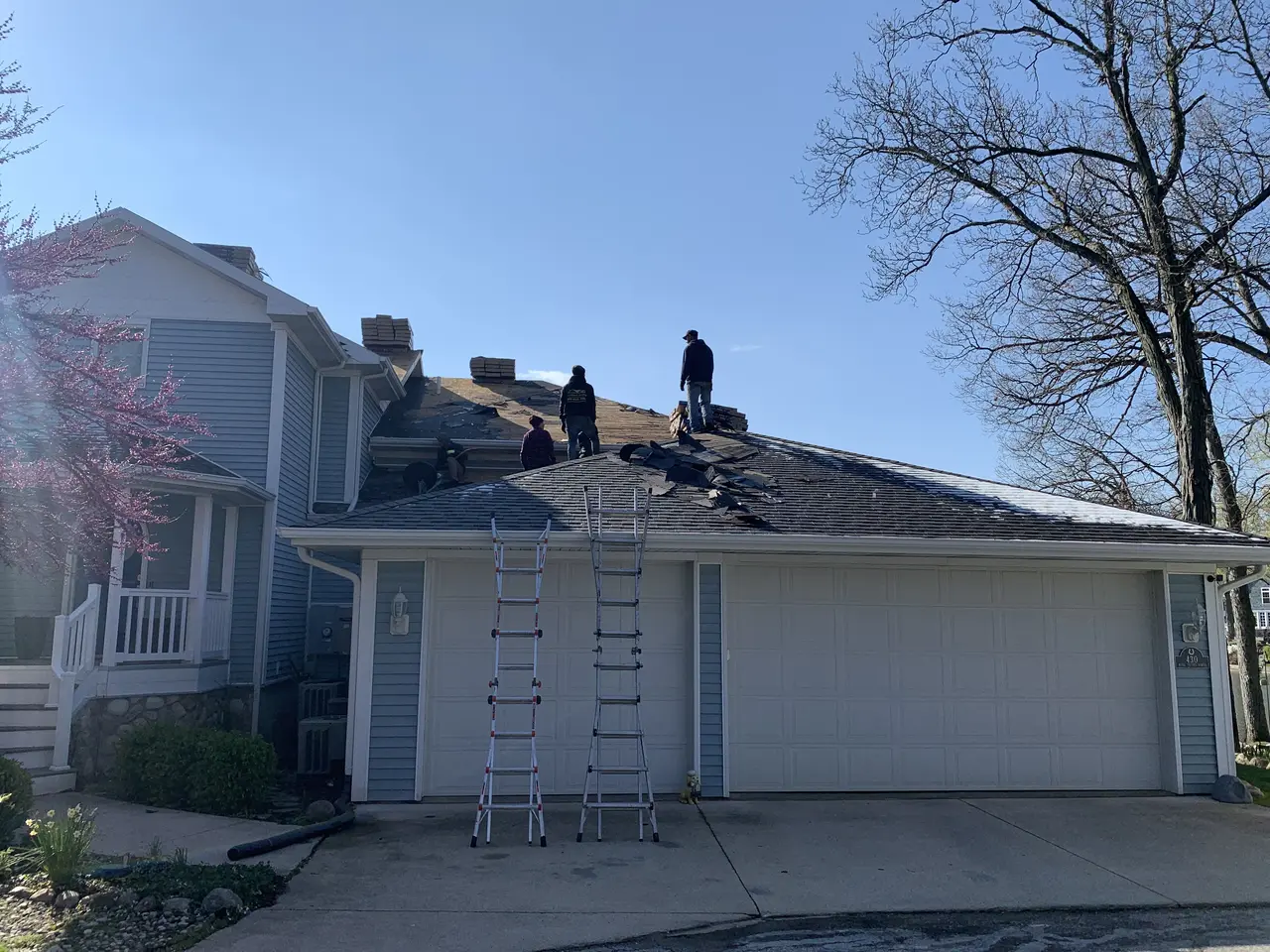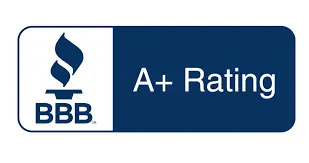SERVING FORT WAYNE AND SURROUNDING AREA

News & Insights

The Benefits of Upgrading Your Residential Roofing: Comfort and Energy Efficiency
The Benefits of Upgrading Your Residential Roofing: Comfort and Energy Efficiency
Importance of residential roofing maintenance
Regular maintenance of your residential roof is crucial to ensure its longevity and performance. By conducting regular inspections and addressing any issues promptly, you can prevent costly repairs down the line. Proper maintenance also helps in identifying potential leaks, damages, or wear and tear early on, ultimately extending the lifespan of your roof. Additionally, well-maintained roofing can improve your home's energy efficiency by reducing heat loss and improving insulation. Remember, investing in regular roof maintenance can save you money in the long run and provide a comfortable and energy-efficient living environment.

Benefits of upgrading your residential roof
Upgrading your residential roof comes with several benefits that enhance both your comfort and increase energy efficiency levels at home. By opting to upgrade your roof, you can significantly improve the insulation of your house. This means that during the hot summer months, your home will stay cooler, and during the cold winter months, it will retain heat better. This leads to a more comfortable living environment year-round. Additionally, an upgraded roof can result in lower energy bills due to reduced reliance on heating and cooling systems, ultimately saving you money in the long run.
Enhanced comfort through roofing upgrades
Upgrading your residential roofing can significantly improve your comfort indoors. A well-maintained roof helps regulate indoor temperature, keeping your home cooler in the summer and warmer in the winter. This enhanced insulation also reduces drafts, making your living spaces more comfortable throughout the year. By upgrading your roofing, you can create a more pleasant living environment for you and your family.
Energy efficiency and cost savings
Upgrading your residential roofing can lead to significant energy savings in the long run. According to the Department of Energy, a well-insulated and energy-efficient roof can reduce your heating and cooling costs. By upgrading to reflective roofing materials, you can also lower your home's temperature in the summer, reducing the need for air conditioning. Additionally, installing energy-efficient roofing materials may make you eligible for tax credits or rebates, further adding to your cost savings over time.
Types of roofing materials for residential upgrades
Upgrading your residential roofing can provide you with enhanced comfort and improved energy efficiency. When considering different types of roofing materials for your upgrade, you have several options to choose from. Some common types include:
Asphalt shingles
Metal roofing
Wood shingles
Tile roofing
Each of these materials has its own set of advantages and considerations, so it's important to select a material that aligns with your specific needs and preferences.
Factors to consider before upgrading your roof
Before upgrading your roof, consider these factors to ensure a successful project. Your contractor can provide guidance in these factors, as well.
Energy Efficiency: Upgrading your roof can improve your home's energy efficiency by reducing heating and cooling costs.
Material Choice: Decide on the right roofing material based on your climate, budget, and desired aesthetic.
Roofing Contractor: Hire a reputable roofing contractor with experience in roof upgrades.
Permits and Regulations: Check local regulations and obtain necessary permits before starting the project.
Budget: Set a budget that includes all costs, such as materials, labor, and any unforeseen expenses.
Professional roof inspection and assessment
Professional roof inspections are crucial to ensure your roof is in good condition and identify any potential issues. An experienced roofer will carefully examine your roof to assess its current state and pinpoint any areas that may need attention. This inspection will help you understand the condition of your roof and any necessary repairs or maintenance that may be required. It is recommended to schedule a professional roof inspection regularly to prevent costly damages in the future.
Choosing the right roofing contractor
To choose the right roofing contractor for your project, start by asking for recommendations from friends, family, or neighbors who have had similar work done. You can also search online for local roofing contractors with high ratings and positive reviews. When you contact potential contractors, ask about their experience, certifications, and if they offer warranties on their work. Get multiple quotes to compare pricing and make sure to ask about the materials they use. Additionally, ensure the contractor is licensed and insured to protect yourself from liability in case of accidents. By doing your research and selecting a reputable contractor, you can ensure a smooth and successful roofing upgrade for your home.
Installation process for residential roofing upgrades
Upgrading your residential roofing involves several steps. Here's a breakdown of the installation process:
Assessment: A professional roofer will assess your current roof condition to determine the scope of work needed for the upgrade.
Material Selection: You will choose the roofing material based on your preferences and needs, such as durability, style, and energy efficiency.
Preparation: The existing roof will be prepared by removing the old roofing materials and ensuring the roof deck is in good condition.
Installation: The new roofing material will be installed following the manufacturer's guidelines and local building codes.
Finishing Touches: Flashings, gutters, and other components will be added to ensure the roof is properly sealed and functional.
Clean-Up: The roofers will clean up the work area, removing any debris and ensuring your property is left in good condition.
Overall, the installation process for residential roofing upgrades is essential to achieve a more comfortable and energy-efficient home.
Long-term benefits and value of upgrading your residential roof
Upgrading your residential roof brings long-term benefits and value to your home. Here's why:
A new roof enhances comfort by providing better insulation, keeping your home cooler in summer and warmer in winter.
Improved energy efficiency lowers utility bills over time, saving you money in the long run.
Upgrading your roof increases the property value of your home, making it more attractive to potential buyers if you decide to sell in the future.
With modern roofing materials, you can enjoy a more durable and long-lasting roofing solution, reducing the need for frequent repairs or replacements.
Get Your Free Estimate Now and Start Transforming Your Space Today!
